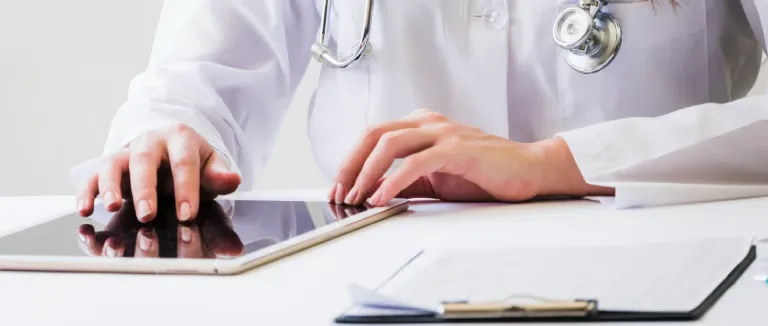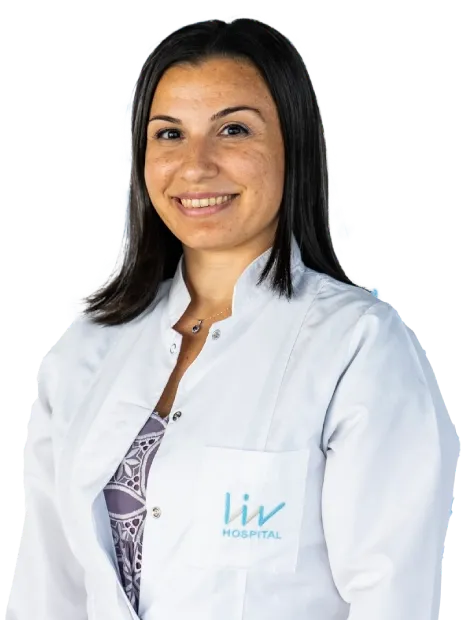-
What is a Women's Health Checkup?
-
Why are Regular Checkups Crucial for Women's Health?
-
Key Components of a Women's Health Checkup Exam
-
Recommended Health Screenings for Women Ages 18-39
-
Essential Health Screenings for Women Ages 40-64
-
Important Health Screenings for Women Age 65 and Older
-
Turkey: A Leading Destination for Medical Care
-
Women's Health Checkups at Liv Hospital
-
Preparing for Your Women's Health Checkup Visit
-
Frequently Asked Questions (FAQs)
A checkup for women is a routine medical visit to monitor health, perform recommended screenings, and address any physical or reproductive health concerns. Prioritize your well-being with a women's health checkup at Liv Hospital. Discover essential screenings and preventive care. Book your appointment today.

What is a Women's Health Checkup?
A women's health checkup, often referred to as a well-woman visit is a comprehensive, preventive health assessment tailored specifically to women. It includes physical exams, health screenings, and personalized medical counseling to help detect potential issues early and promote long-term well-being.
Understanding the Well-Woman Visit
A women's yearly exam is an annual visit that includes a physical assessment, preventive screenings, and discussions about reproductive and overall health.
The well-woman visit is a yearly opportunity to connect with your healthcare provider, assess your overall health, and discuss lifestyle factors that may affect your well-being. It covers essential aspects such as reproductive health, mental health, and chronic disease prevention.
The Importance of Regular Preventive Screenings
Regular women's health checkup exams are crucial for preventive care, allowing for early detection of potential issues and promoting overall well-being throughout a woman's life. Preventive care for women helps identify risks before symptoms appear. From Pap smears to blood pressure checks, these screenings are vital in catching illnesses early, when they are most treatable.
Why are Regular Checkups Crucial for Women's Health?
Early Detection of Potential Health Issues
Regular checkups help in detecting conditions like breast cancer, cervical cancer, heart disease, or osteoporosis at an early stage, significantly improving treatment outcomes.
Establishing a Baseline for Your Health
Tracking your vital signs, lab results, and health habits over time provides a baseline that helps detect abnormalities quickly.
Building a Relationship with Your Healthcare Provider
Open communication with your doctor fosters trust, making it easier to discuss sensitive topics and make informed decisions about your health.
Key Components of a Women's Health Checkup Exam
Medical History Review and Discussion
Your doctor will review your medical and family history, discuss current medications, and inquire about lifestyle factors such as diet, exercise, and stress.
Physical Examination
A general women’s physical exam includes weight, height, body mass index (BMI), and an overall review of body systems.
Pelvic Exam and Pap Smear
The obstetrics and gynecology department specializes in the comprehensive care of women's reproductive health, pregnancy, and childbirth. Essential for cervical cancer screening, the Pap smear collects cervical cells to identify precancerous changes. This is often combined with HPV testing.
Vital Signs Measurement
Blood pressure, heart rate, respiratory rate, and temperature are measured to detect early signs of cardiovascular or metabolic disorders.
Recommended Blood Tests and Lab Work
Includes cholesterol, blood sugar, thyroid levels, and other essential tests based on your age and risk profile.
Recommended Health Screenings for Women Ages 18-39
It's important for young adult women to discuss the recommended health screenings for women ages 18-39 with their healthcare provider to ensure early detection and prevention of potential health issues. Health screenings for women ages 18 to 39 typically include blood pressure checks, cholesterol testing, Pap smears, and screenings for sexually transmitted infections and mental health.
Pap Smear Frequency
Recommended every 3 years for women aged 21–29; may extend to every 5 years when combined with HPV testing after age 30.
HPV Testing Guidelines
HPV testing is typically recommended starting at age 30, unless risk factors are present.
STD Screening Recommendations
Sexually active women under 25 should be screened annually for chlamydia and gonorrhea. Screening may continue beyond this age based on risk.
Basic Blood Work (Cholesterol, Blood Sugar)
Helps identify early signs of diabetes and cardiovascular risks.
Lifestyle and Mental Health Assessment
Mental health is a vital part of women’s health maintenance visit.
Essential Health Screenings for Women Ages 40-64
Health screenings for women ages 40 to 64 often include mammograms, cholesterol checks, diabetes screening, Pap smears, and screenings for colorectal cancer and osteoporosis. 4D breast ultrasound is an advanced imaging technique that provides real-time, moving three-dimensional images of breast tissue to aid in the detection and evaluation of abnormalities.
Mammogram Recommendations for Breast Cancer Screening
Breast cancer screening involves the use of tests, such as mammography, to detect breast cancer at an early, more treatable stage before symptoms appear. Annual or biennial mammograms are recommended starting at age 40 to detect breast cancer early.
Continued Pap Smears and HPV Testing
Women in this age range should continue cervical cancer screenings based on their individual risk.
Colon Cancer Screening Options
Screenings like colonoscopy should begin at age 45, or earlier if there’s a family history.
Bone Density Screening
Post-menopausal women are at risk of osteoporosis. Screening begins around age 50–60.
Cardiovascular Risk Assessment
Includes cholesterol, blood pressure, and lifestyle evaluations to prevent heart disease—the leading cause of death in women.
Important Health Screenings for Women Age 65 and Older
Health screenings for women age 65 and older commonly include bone density tests, mammogram, colorectal cancer screenings, vision and hearing checks, and assessments for cognitive decline and fall risk.
Continued Screenings
Depending on personal and family history, screenings for breast, colon, and cervical cancers may still be necessary.
Vision and Hearing Tests
Regular checks help maintain independence and quality of life. Regular checkups for women play a vital role in maintaining long-term health by enabling early detection of diseases and providing opportunities for preventive care and health counseling.
Cognitive Function Assessment
Evaluates memory, thinking, and problem-solving abilities to detect early signs of dementia or Alzheimer’s.
Medication Review
To prevent interactions and ensure correct dosages, a complete medication review is vital.
Fall Risk Assessment
Balance tests and home safety assessments help prevent fractures and hospitalizations

Turkey: A Leading Destination for Medical Care
Why International Patients Choose Turkey for Healthcare
Turkey has emerged as a top medical destination due to its advanced facilities, highly trained professionals, and patient-centered care.
High Standards of Medical Services and Technology
At Liv Hospital, we use the latest diagnostic and treatment technologies, ensuring accurate results and efficient care.
Cost-Effectiveness of Treatment in Turkey
Compared to many Western countries, healthcare in Turkey is more affordable without compromising quality.
Women's Health Checkups at Liv Hospital
The LIV Hospital check up center offers comprehensive health screenings using advanced diagnostic technology to promote early detection and personalized preventive care.
Our Specialized Team for Women's Health
Our experienced gynecologists, internists, radiologists, and laboratory experts work together to ensure holistic care.
State-of-the-Art Diagnostic and Screening Technologies
We offer 3D mammography, digital colposcopy, and advanced lab tests to provide accurate, timely results.
Personalized Check-up Packages Tailored to Your Needs
Liv Hospital offers age-specific women’s checkup packages that cover all essential screenings and consultations. One of these is the genetic check-up. A genetic check up is a medical evaluation that analyzes a person's DNA to assess the risk of inherited diseases and guide personalized health decisions.
| Age Group | Key Screenings |
| Age Group | Key Screenings |
|---|---|
| 18–39 | Pap smear, STD tests, blood tests |
| 40–64 | Mammogram, bone density, colonoscopy |
| 65+ | Cognitive test, vision/hearing, fall risk |
Seamless Experience for International Patients
From language support to travel coordination, our international patient services team ensures a smooth, stress-free process.
Preparing for Your Women's Health Checkup Visit
What Information to Bring
Include your medical history, medications list, past lab results, and any symptoms you've noticed.
Questions to Ask Your Doctor
Should I change my screening schedule based on my family history?
Are there lifestyle changes I should consider?
What preventive measures can I take now?
Scheduling Your Appointment Effectively
Plan your visit around your cycle for pelvic exams and arrive well-rested for accurate test results.
Frequently Asked Questions (FAQs)
How often should I get a women's health check-up?
Annually, unless otherwise directed by your physician.
What specific tests are included in a well-woman exam?
It typically includes a pelvic exam, Pap smear, blood tests, breast exam, and lifestyle counseling.
Is a Pap smear necessary every year?
Not necessarily. Guidelines suggest every 3–5 years depending on your age and test combination.
When should I start getting mammograms?
Generally at age 40, earlier if you have a family history of breast cancer.
What makes Liv Hospital a good choice for my annual checkup?
With a multidisciplinary team, cutting-edge diagnostics, and personalized packages, Liv Hospital offers world-class women's health checkups in a compassionate, professional environment.
* Contents of this page is for informational purposes only. Please consult your doctor for diagnosis and treatment. The content of this page does not include information on medicinal health care at Liv Hospital .









